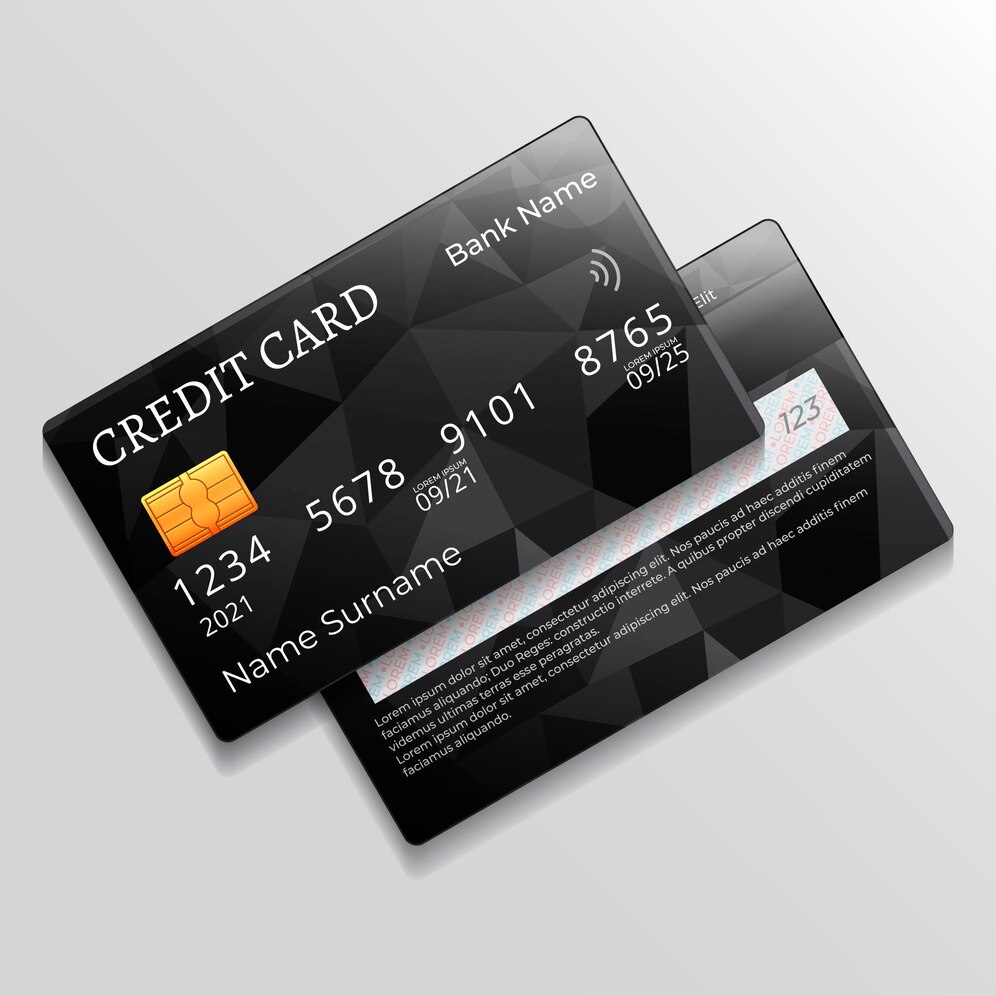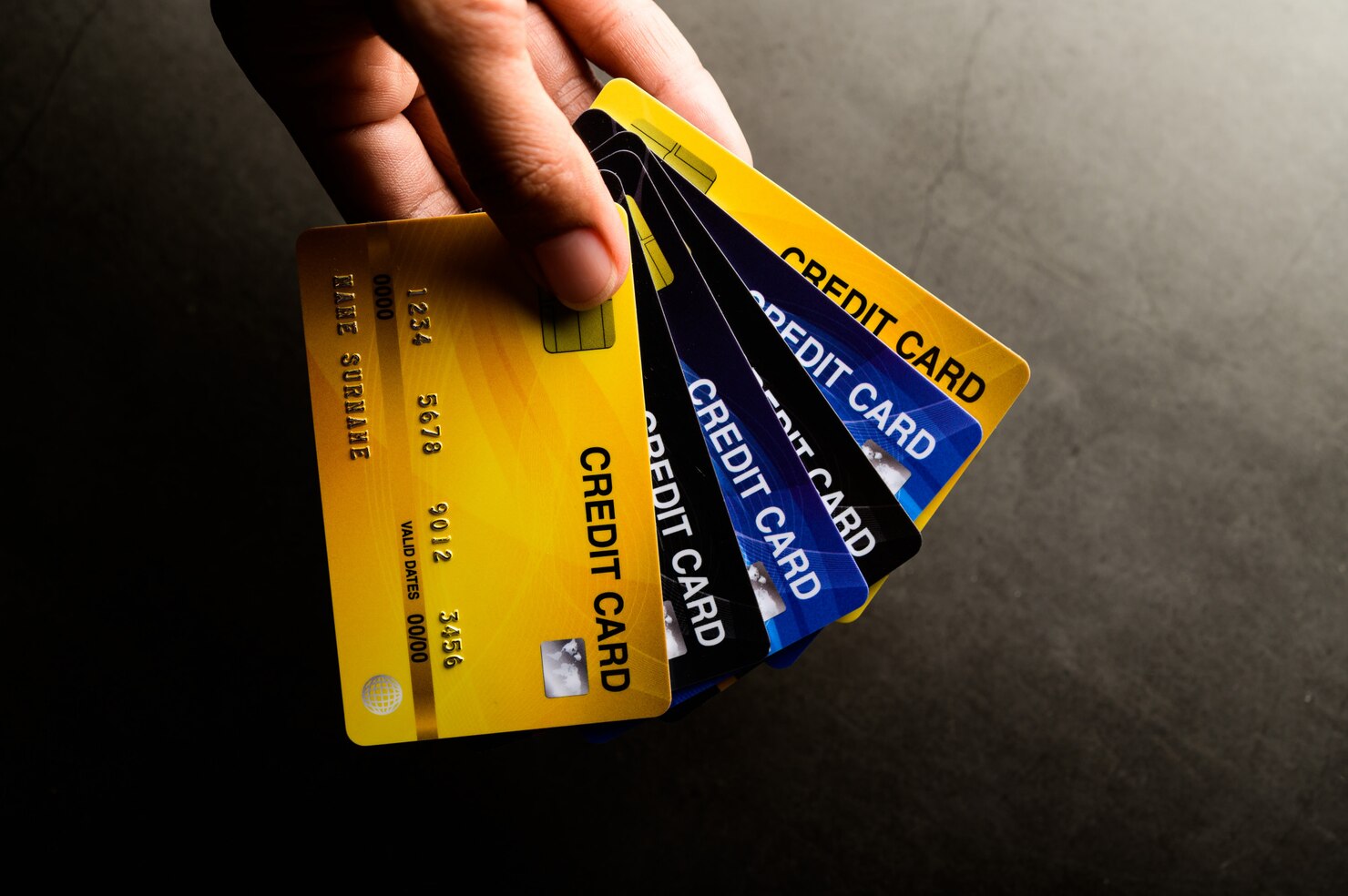Anúncios
Credit cards are a convenient and powerful financial tool when used wisely. They offer flexibility in spending, the opportunity to build credit, and rewards for everyday purchases. However, if mismanaged, credit cards can lead to debt and financial stress. This guide provides an in-depth look at how credit cards work, their advantages, and how to use them responsibly.
How Credit Cards Work
A credit card allows you to borrow money from a financial institution (typically a bank) to make purchases, with the promise that you will repay the amount borrowed later. Each credit card comes with a credit limit, which represents the maximum amount you can borrow at any given time. When you make a purchase using a credit card, you are essentially taking out a short-term loan, and you must pay back the amount either in full by the due date or over time, with interest.
Anúncios
Key Components of a Credit Card
- Credit Limit: This is the maximum amount you can borrow. Your limit is determined by the card issuer based on factors like your credit score, income, and credit history.
- Interest Rate (APR): The annual percentage rate (APR) is the cost of borrowing money on the card. If you don’t pay off your balance in full each month, interest will be charged on the remaining amount.
- Minimum Payment: This is the smallest amount you are required to pay each month to avoid late fees and maintain good standing with the card issuer. However, only making the minimum payment can result in high-interest charges and long-term debt.
- Grace Period: This is the time between when your statement is issued and when your payment is due. If you pay your balance in full by the due date, you avoid paying interest on your purchases.
- Fees: Credit cards often come with fees, such as annual fees, late payment fees, and foreign transaction fees. It’s important to understand the fees associated with your card to avoid unnecessary charges.
Advantages of Using a Credit Card
1. Building Credit History
Using a credit card responsibly is one of the most effective ways to build a strong credit history. By making timely payments and keeping your balance low, you can improve your credit score. A good credit score is crucial for securing loans, mortgages, and even renting an apartment.
2. Convenience and Flexibility
Credit cards provide the convenience of making purchases online, over the phone, or in person without carrying cash. They are widely accepted globally, and many cards offer protection against fraud, making them a safer option for transactions.
Anúncios
3. Rewards and Benefits
Many credit cards offer rewards programs that allow you to earn points, cashback, or travel miles on your purchases. Some cards also provide additional perks such as travel insurance, extended warranties, and access to exclusive events.
4. Emergency Fund
A credit card can serve as a financial safety net in emergencies when you may not have access to liquid cash. However, it’s important to use this option sparingly and ensure you can repay the balance quickly to avoid accumulating debt.
5. Purchase Protection
Credit cards often offer purchase protection, meaning if an item is damaged, lost, or stolen shortly after purchase, the card issuer may reimburse you for the cost. This can provide added peace of mind when making large purchases.
Disadvantages of Credit Cards
While credit cards offer many benefits, they can also come with risks if not managed carefully.
1. High-Interest Rates
If you carry a balance on your credit card from month to month, you may incur high-interest charges, which can quickly accumulate and lead to debt. Interest rates on credit cards are often higher than other forms of borrowing, such as personal loans or lines of credit.
2. Debt Accumulation
It’s easy to overspend when using a credit card, especially if you only make minimum payments each month. This can result in carrying a large balance, which can take years to pay off and cost you significantly more due to interest charges.
3. Fees and Penalties
Many credit cards come with various fees, including annual fees, late payment fees, and over-limit fees. Missing a payment or exceeding your credit limit can also negatively impact your credit score and result in penalty interest rates.
4. Temptation to Overspend
Because credit cards provide easy access to funds, they can tempt users to overspend, leading to financial difficulties. It’s important to use credit cards within your means and stick to a budget.
How to Choose the Right Credit Card
With so many credit card options available, it can be challenging to choose the right one. Here are some factors to consider when selecting a credit card:
1. Interest Rate (APR)
If you plan to carry a balance on your credit card, choosing one with a low-interest rate is essential. Some cards offer promotional 0% APR periods for new purchases or balance transfers, which can be beneficial if you need time to pay off a balance without incurring interest charges.
2. Rewards Program
Consider your spending habits and choose a card that offers rewards that align with your lifestyle. For example, if you frequently travel, a card that offers travel rewards and perks such as free checked bags or airport lounge access may be a good choice. If you prefer cashback, look for a card that offers high cashback rates on everyday purchases.
3. Fees
Be aware of the fees associated with the credit card. Some cards charge annual fees, which can be worth it if the rewards and benefits outweigh the cost. However, if you prefer a no-fee card, there are plenty of options that still offer valuable rewards.
4. Credit Score Requirements
Each credit card has different credit score requirements for approval. Before applying, check the card’s requirements to ensure you meet the minimum credit score to avoid a hard inquiry on your credit report that could lower your score.
5. Additional Benefits
Many credit cards offer additional benefits such as travel insurance, extended warranties, purchase protection, and rental car insurance. Consider these perks when comparing cards, especially if you frequently travel or make large purchases.
Tips for Using Credit Cards Responsibly
- Pay Your Balance in Full: To avoid interest charges, aim to pay off your balance in full each month. If that’s not possible, pay more than the minimum payment to reduce your debt more quickly.
- Keep Your Credit Utilization Low: Credit utilization refers to the percentage of your credit limit that you use. A low credit utilization (below 30%) can positively impact your credit score. Try to keep your balances low relative to your credit limit.
- Monitor Your Statements: Regularly review your credit card statements to ensure there are no unauthorized charges. Monitoring your statements can also help you track your spending and stay within your budget.
- Avoid Cash Advances: Cash advances from credit cards often come with high fees and immediate interest charges. Use cash advances only in emergencies and pay them off as soon as possible.
- Set a Budget: Treat your credit card like cash and set a budget for your spending. Avoid using it for non-essential purchases if you cannot pay off the balance in full by the due date.
Conclusion
Credit cards can be a valuable financial tool when used responsibly. They offer convenience, the ability to build credit, and rewards for everyday spending. However, it’s essential to be aware of the potential risks, such as high-interest rates and the temptation to overspend. By choosing the right card, managing your spending, and paying your balance in full, you can maximize the benefits of credit cards while avoiding debt. Whether you’re a seasoned credit card user or just starting, understanding how to use credit cards effectively is key to maintaining a healthy financial life.


